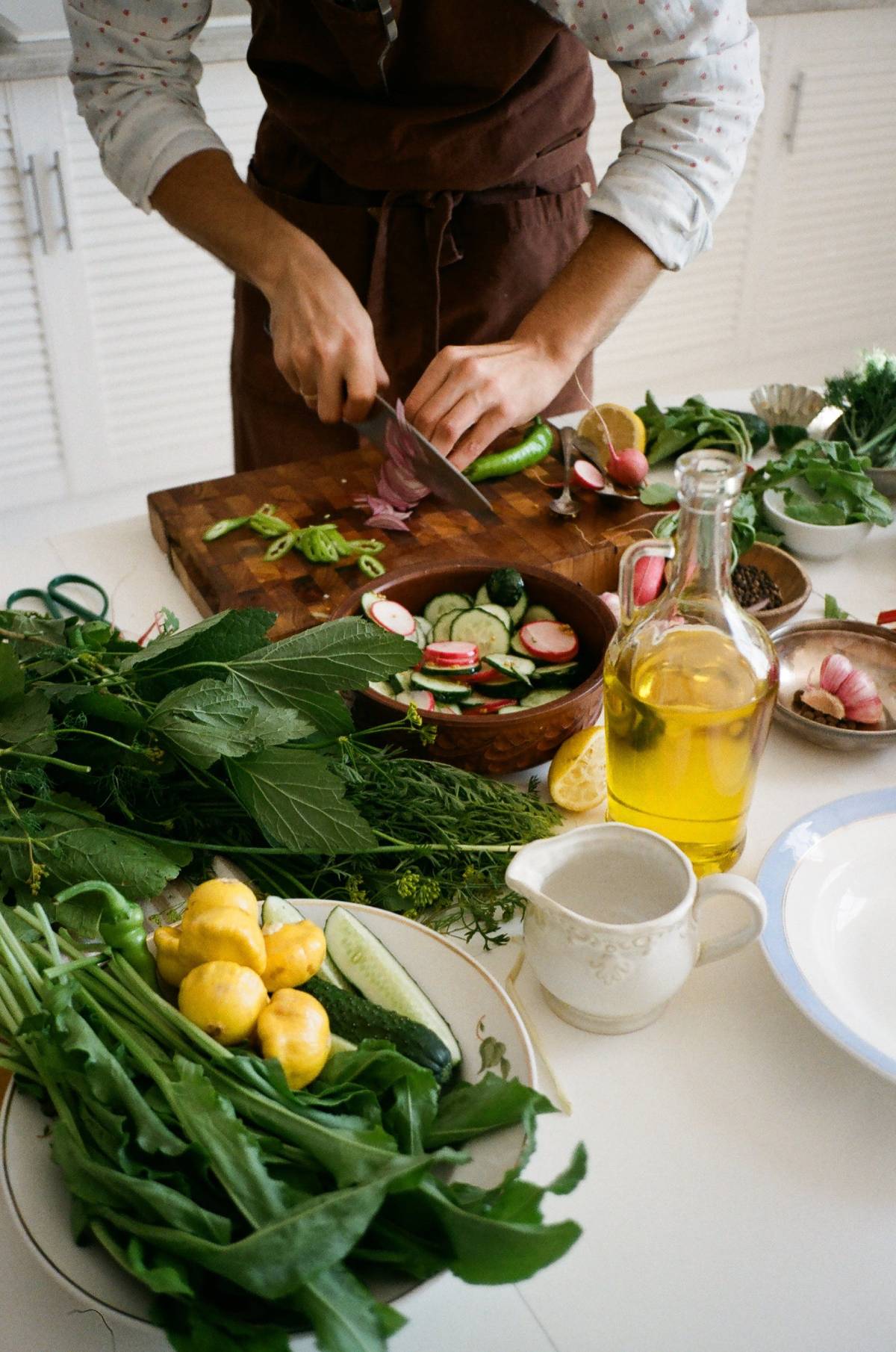Guest article provided by: tastepak.com
A well-maintained kitchen is not only the heart of a home but also a sanctuary for both physical and mental well-being. Adopting healthy kitchen safety practices ensures that the space where we prepare our meals becomes a haven, promoting good health and a positive mind-set.
Discover the importance of maintaining a hygienic and organized kitchen, focusing on both the physical and mental aspects of wellness.
Physical Wellness
1. Cleanliness is Key:
A clean kitchen is a healthy kitchen. Regularly clean countertops, cutting boards, utensils, and appliances to eliminate the risk of bacterial contamination. This not only safeguards your physical health but also fosters an environment conducive to creating nutritious meals.
2. Proper Food Storage:
Organize your pantry and refrigerator to ensure proper food storage. This practice not only helps prevent foodborne illnesses but also reduces food wastage. A clutter-free and organized space makes it easier to locate ingredients, promoting efficiency and reducing stress.
3. Safe Cooking Practices:
Practice safe cooking habits to prevent accidents. Keep pot handles turned inward to avoid spills, use oven mitts when handling hot pots and pans, and be mindful of sharp utensils. By prioritizing safety, you not only protect yourself from physical harm but also create a stress-free cooking experience.
4. Mindful Meal Planning:
Plan your meals mindfully, incorporating a variety of nutrient-rich foods. This not only contributes to your physical health but also helps establish a positive relationship with food. A well-balanced diet is essential for overall well-being.
Mental Wellness
1. Declutter for Peace of Mind:
An organized kitchen is a reflection of an organized mind. Decluttering the kitchen space minimizes visual distractions, creating a calming atmosphere. Consider investing in storage solutions to keep countertops clear and promote mental clarity.
2. Create a Relaxing Ambiance:
Pay attention to the ambiance of your kitchen. Use soft lighting, calming colors, and soothing scents to create a peaceful environment. A relaxed setting can positively impact your mental well-being, making cooking a more enjoyable and therapeutic activity.
3. Practice Mindful Cooking:
Turn cooking into a mindful practice by staying present in the moment. Engage your senses, focus on the textures and aromas of the ingredients, and savor the cooking process. This mindfulness not only enhances the quality of your meals but also acts as a stress-relieving activity.
4. Establish a Routine:
Establishing a routine for meal preparation can bring a sense of order and predictability. A structured routine helps reduce decision fatigue and provides a mental anchor in the midst of daily chaos.
Here are some additional hints and tips to enhance your journey towards a healthier and more organized kitchen, encompassing both physical and mental well-being:
Physical Wellness Hints & Tips
1. Invest in Quality Kitchen Tools:
Choose high-quality, durable kitchen tools to make food preparation more efficient and enjoyable. Sharp knives, reliable cutting boards, and sturdy cookware contribute to a safer cooking environment.
2. Regular Appliance Maintenance:
Keep your kitchen appliances in top condition by scheduling regular maintenance. Clean out the oven, check the seals on the refrigerator, and descale your coffee maker. Well-maintained appliances not only last longer but also operate more safely.
3. Label and Date Ingredients:
Avoid confusion and reduce the risk of using expired ingredients by labelling and dating items in your pantry and refrigerator. This practice promotes both safety and efficiency in meal preparation.
4. Hydration Station:
Keep a designated hydration station in your kitchen with a water dispenser or pitcher. Staying hydrated is crucial for overall health, and having water readily available encourages you to maintain good hydration habits.
Mental Wellness Hints & Tips
1. Incorporate Sound or Podcasts:
Turn mundane kitchen tasks into enjoyable experiences by playing your favourite tunes or listening to interesting podcasts. This simple addition can transform the atmosphere and make cooking a more pleasurable and mentally engaging activity.
2. Create a Recipe Corner:
Designate a corner or space for your favourite recipes, cooking inspiration, and cookbooks. This not only keeps your kitchen organized but also serves as a source of creative inspiration, making meal planning an enjoyable endeavour.
3. Celebrate Culinary Achievements:
Celebrate your culinary accomplishments, no matter how small. Keep a journal of successful recipes, create a “chef’s corner” with framed certificates or photos of your favourite dishes, fostering a positive and rewarding relationship with cooking.
4. Meal Prep for Stress Reduction:
Dedicate time to meal prep at the beginning of the week. This not only streamlines your cooking process but also reduces daily stress related to deciding what to cook. Having prepped ingredients on hand makes it easier to stick to healthy meal choices.
5. Introduce Aromatherapy:
Use essential oils or scented candles with calming scents such as lavender or chamomile in your kitchen. Aromatherapy can have a positive impact on mood and stress levels, creating a serene cooking environment.
By incorporating these hints and tips into your kitchen routine, you can further elevate the physical and mental well-being aspects of your cooking space, turning it into a true sanctuary for health and happiness.
A healthy kitchen is not just about physical cleanliness but extends to mental well-being. By adopting both physical and mental wellness practices, you transform your kitchen into a space that nurtures and sustains both your body and mind.
Take the time to create a haven of wellness in your kitchen, and you’ll find that the benefits extend far beyond the delicious meals you prepare.
Photo By: pexels.com

